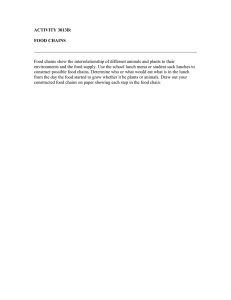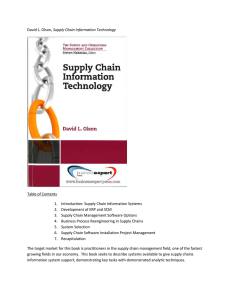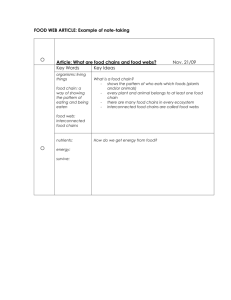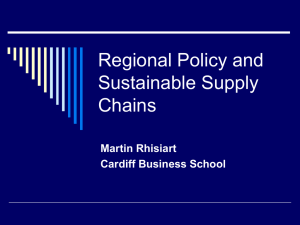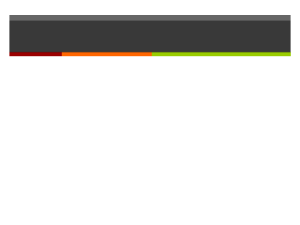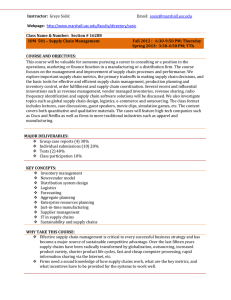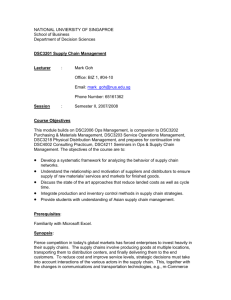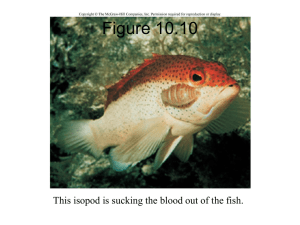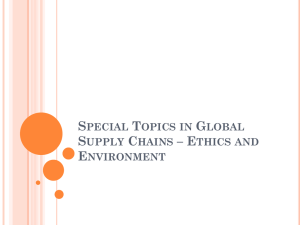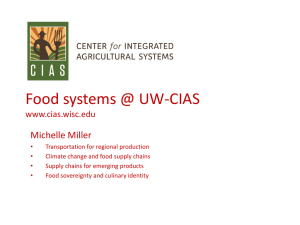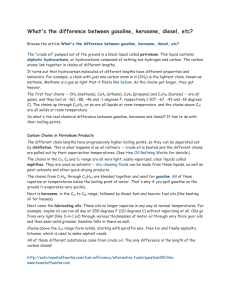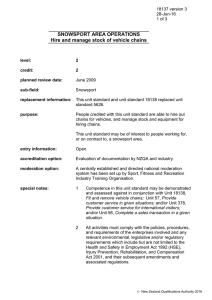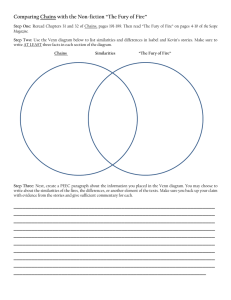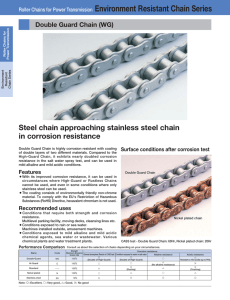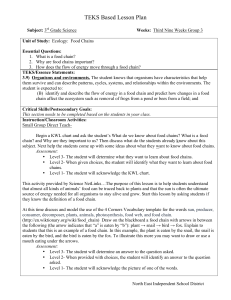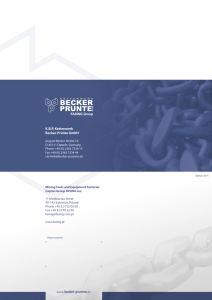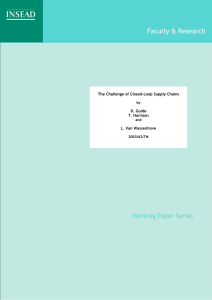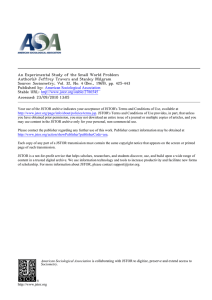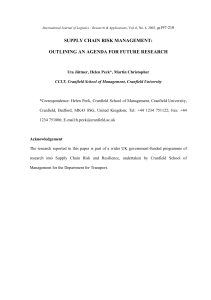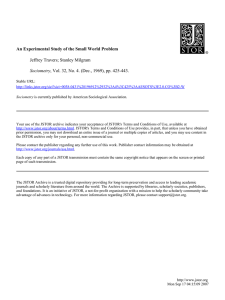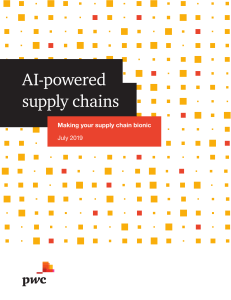Supply Chain Management Production Operations U. Akinc
advertisement
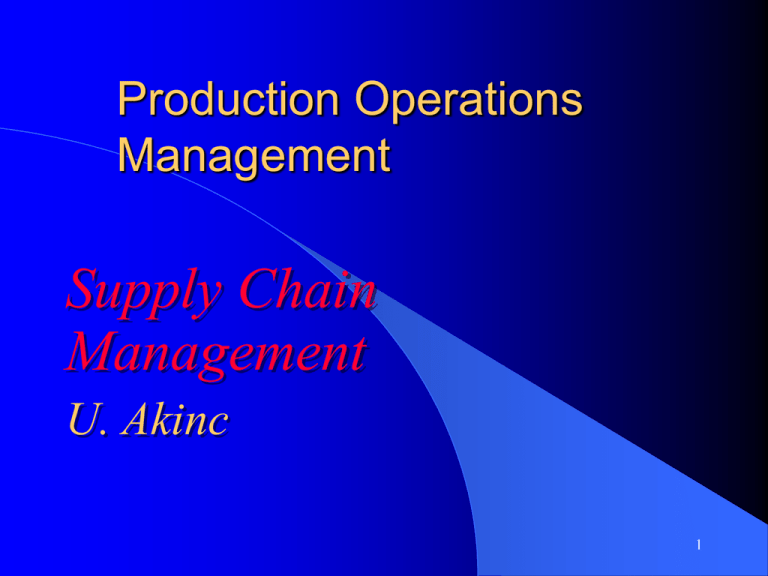
Production Operations Management Supply Chain Management U. Akinc 1 Supply Chains A supply chain encompasses all the facilities, activities and functions in the delivery of products to customers from the raw material to the finished product stages. Modern supply chain management is to manage the facilities, activities and functions in an integrated and coordinated way so as to maximize customer satisfaction. 2 Supply chain management: is a strategic area of management involves strategic investments in facilities, technologies and relationships significantly impacts the way the company competes Efficiency (cost) Delivery speed and reliability Quality Customization/flexibility 3 Structure of Supply Chain 4 I. Facilities Involve plants, warehouses, distribution centers, transportation infrastructure and communication links. Challenge: How should these be aligned and realigned across the members of the SC to maximize efficiency, speed and responsiveness for the whole chain. 5 II. Functions Traditional functional organization around marketing, manufacturing, finance etc. does not foster an integrated approach to the challenges of the Modern Supply Chain Management A more of an inter-functional, team approach to management is needed. 6 III. Activities: Traditional Materials management involve: purchasing shipping/receiving inventory management production scheduling transportation/distribution customer service 7 Supply-Chain Decisions Sourcing: – – – – – Quality of materials/parts Supplier selection Location of suppliers Ordering practices In-bound transportation channels Production – – – – Plant Location Make versus Buy Capacity of Plants Product Quality 8 SC Decisions (cont.) Inventory – How much safety stock? – JIT practices – Replenishment policies Distribution – – – – – Channels of distribution Transportation modes In-house vs. out-sourced DC locations Recycling/recovery practices 9 State of Integration Stage I: traditional managemet where all facilities, functions and activities are managed independently (prior to 1960’s) Stage II: A company integrates its material management activities and functions within its own 4 walls (1960’s) Stage III: Enterprise Extension-- couple, coordinate and integrate all facilities, functions and activities for the entire supply chain (1990’s and beyond) 10 Three Flows Physical goods, components, materials, recycling and recovery Information -- both upstream and downstream.. Main means of integration Financial 11 Bull Whip Effect Demand uncertainty is the main cause of inefficiencies on the supply chain Small variations in demand at the customer end often produce dramatic and violent fluctuations in orders down stream (bullwhip) Integrating the supply chain tries to dampen these fluctuations-- often by sharing information 12 Supply Chain Strategies Responsive supply chains: Efficient supply chains: Great variety of short life cycle, customized products --Innovative Products Highly stable and predictable demand --Functional products A trade-off to be resolved 13 Relationships Creating a trusting, mutually beneficial relationships among the members of the supply chain is essential Contrary to the traditional approach, in modern SCM, the suppliers are not considered as adversaries but as trusted partners 14 SC Challenges Involves a number of different companies with diverse objectives, philosophies and management styles Information systems used by different members may not be compatible for seamless information sharing Sharing the benefits and risks is not always easy Lack of universally accepted performance measures 15
